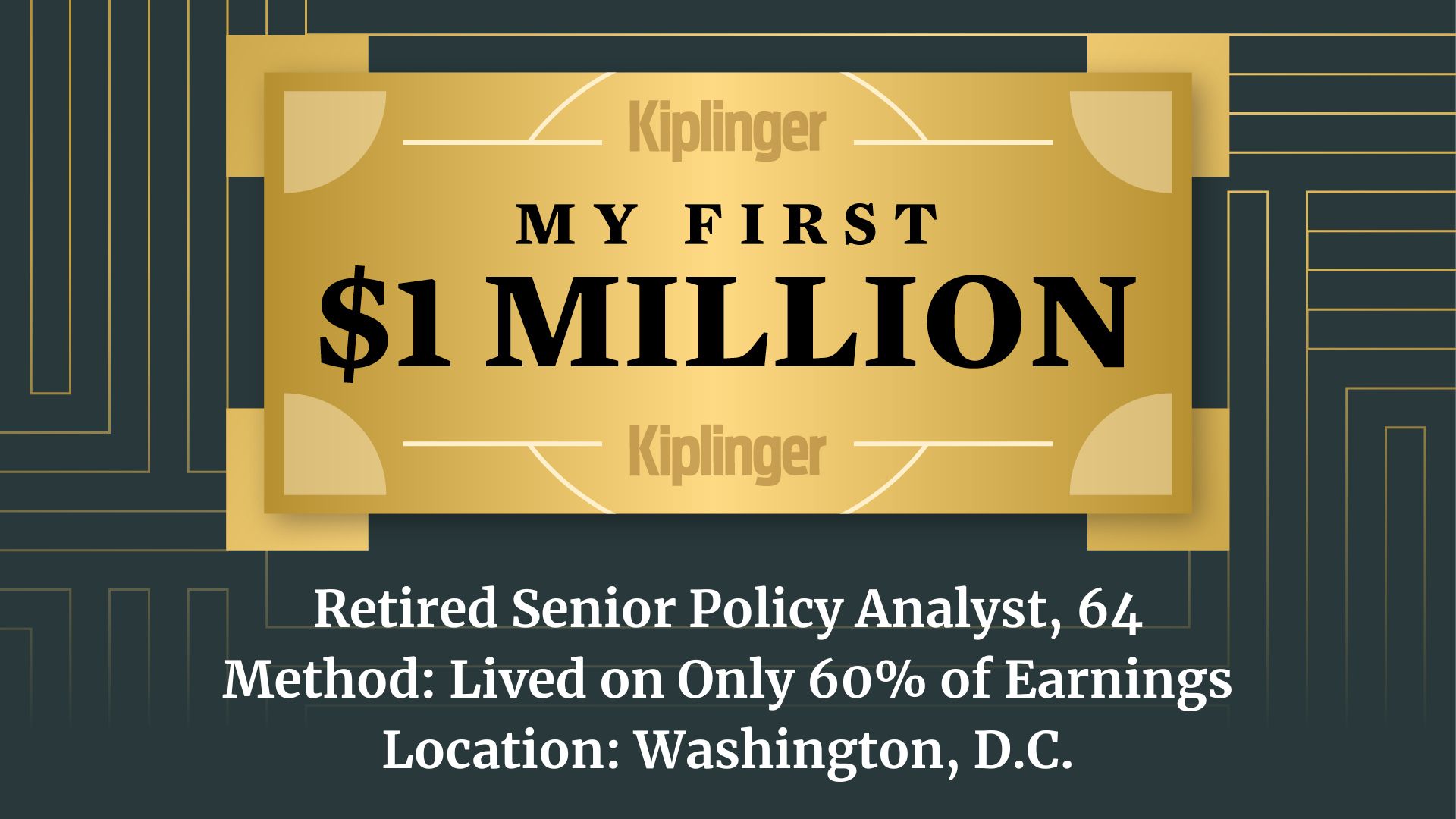Should You Buy Into the Alibaba IPO?
Even though the stock’s offering price is still unknown, a lot of the hype surrounding China’s leading e-commerce firm is justified.

Profit and prosper with the best of Kiplinger's advice on investing, taxes, retirement, personal finance and much more. Delivered daily. Enter your email in the box and click Sign Me Up.
You are now subscribed
Your newsletter sign-up was successful
Want to add more newsletters?

Delivered daily
Kiplinger Today
Profit and prosper with the best of Kiplinger's advice on investing, taxes, retirement, personal finance and much more delivered daily. Smart money moves start here.

Sent five days a week
Kiplinger A Step Ahead
Get practical help to make better financial decisions in your everyday life, from spending to savings on top deals.

Delivered daily
Kiplinger Closing Bell
Get today's biggest financial and investing headlines delivered to your inbox every day the U.S. stock market is open.

Sent twice a week
Kiplinger Adviser Intel
Financial pros across the country share best practices and fresh tactics to preserve and grow your wealth.

Delivered weekly
Kiplinger Tax Tips
Trim your federal and state tax bills with practical tax-planning and tax-cutting strategies.

Sent twice a week
Kiplinger Retirement Tips
Your twice-a-week guide to planning and enjoying a financially secure and richly rewarding retirement

Sent bimonthly.
Kiplinger Adviser Angle
Insights for advisers, wealth managers and other financial professionals.

Sent twice a week
Kiplinger Investing Weekly
Your twice-a-week roundup of promising stocks, funds, companies and industries you should consider, ones you should avoid, and why.

Sent weekly for six weeks
Kiplinger Invest for Retirement
Your step-by-step six-part series on how to invest for retirement, from devising a successful strategy to exactly which investments to choose.
Ali Baba and the Forty Thieves is one of the world’s most famous folk tales. Appropriately, its namesake e-commerce company has quite a story to tell to investors considering its initial public offering.
Alibaba Group Holding is China’s leader in online sales. Its retail and wholesale Web sites and mobile apps sold an estimated $270 billion (U.S.) in goods in 2013. By helping move that much merchandise, Alibaba can claim to be bigger than eBay (EBAY) and Amazon.com (AMZN). And unlike Amazon, which is notorious for suppressing its profits in order to invest in new businesses, Alibaba has maintained robust earnings even as it has moved into e-payment and cloud computing services.
This suggests that investors may clamor for Alibaba shares when the company goes public later this year on the New York Stock Exchange. We generally advise waiting at least 90 days after an initial public offering before buying in because that allows enough time for the hype to die down. Alibaba reportedly plans to hold its IPO sometime after the Sept. 1 Labor Day holiday.
From just $107.88 $24.99 for Kiplinger Personal Finance
Become a smarter, better informed investor. Subscribe from just $107.88 $24.99, plus get up to 4 Special Issues

Sign up for Kiplinger’s Free Newsletters
Profit and prosper with the best of expert advice on investing, taxes, retirement, personal finance and more - straight to your e-mail.
Profit and prosper with the best of expert advice - straight to your e-mail.
With Alibaba’s combination of fast growth, huge profit margins and a leading position in what will one day be the world’s largest economy, however, the hype may be real.
Alibaba operates several Web sites, including China’s largest shopping destination, Tmall. All of its sites are platforms for other sellers, so the 15-year-old company doesn’t do any direct selling or hold inventory.
Instead, Alibaba’s revenue comes from transaction fees, a small but profitable part of all that shopping. Alibaba posted revenue of $8.5 billion over the 12-month period that ended March 31. That makes the company look tiny compared with Amazon ($78.1 billion) and eBay ($16.6 billion). However, Alibaba earned nearly $3.8 billion over that period, dwarfing Amazon’s net income of $300 million and a $147 million loss at eBay.
Alibaba’s growth may be slowing, but its growth rate still easily outpaces most companies posting that level of profits. Sales increased 55% in the year that ended in March; net income increased nearly sixfold over two years. “Alibaba has a completely different model from Amazon, and that’s the reason for the high profit margins,” says Francis Gaskins, director of research at equities.com and a specialist in IPOs.
Alibaba can make a case that it has plenty of room for more rapid growth. The company says in its offering prospectus that only about 36% of China’s gross domestic product comes from consumer spending, compared with roughly two-thirds of U.S. GDP. Also, the company says that fewer than half of China’s 618 million Internet users are online shoppers.
Alibaba likes to say that its various components represent an “ecosystem.” In addition to the retailing operation, the ecosystem includes a payment-service company called Alipay; a logistics information system called China Smart Logistics; an online-marketing company; and (like Amazon) a cloud-computing business that serves other companies’ computing needs.
One batch of red flags comes in the area of corporate governance. Alibaba founder Jack Ma and a group of insiders will be allowed to nominate a majority of the company’s directors, despite the fact that Ma and his colleagues own a minority of the company’s shares (even before Alibaba goes public). In addition, the company allows Ma to make investments on its behalf. This is because Alibaba incorporated in the Cayman Islands so it could seek non-Chinese investors. But that status also meant it couldn’t invest in certain Chinese businesses. The arrangements with Ma are designed to work around that potential stumbling block.
What will Alibaba shares end up costing you? A Bloomberg survey of analysts in April valued the company at $168 billion; some analysts quoted in news reports have put the value above $200 billion. The company hasn’t decided how many shares it will ultimately offer, but a $200 billion market capitalization — roughly one-third more than Amazon and three times that of eBay — would price the company at slightly more than 50 times the prior 12 months’ earnings. That could actually be a cheap price to buy in to the Alibaba story.
Profit and prosper with the best of Kiplinger's advice on investing, taxes, retirement, personal finance and much more. Delivered daily. Enter your email in the box and click Sign Me Up.

David Milstead joined Kiplinger Personal Finance as senior associate editor in May 2025 after 15 years writing for Canada's Globe and Mail. He's been a business journalist since 1994 and previously worked at the Rocky Mountain News in Denver, the Wall Street Journal, and at publications in Ohio and his native South Carolina. He's a graduate of Oberlin College.
-
 5 Side Gigs That Let You Travel the World in Retirement
5 Side Gigs That Let You Travel the World in RetirementEarn as you explore: High-flexibility side gigs that enable retirees to blend work and travel in 2026.
-
 How You Can Use Donor-Advised Funds to Lower Your Tax Bill
How You Can Use Donor-Advised Funds to Lower Your Tax BillCharitable bunching with a donor-advised fund (DAF) can maximize both the tax benefits and the long-term sustainability of your philanthropic ventures.
-
 My First $1 Million: Retired Senior Policy Analyst, 64
My First $1 Million: Retired Senior Policy Analyst, 64Ever wonder how someone who's made a million dollars or more did it? Kiplinger's My First $1 Million series uncovers the answers.
-
 If You'd Put $1,000 Into AMD Stock 20 Years Ago, Here's What You'd Have Today
If You'd Put $1,000 Into AMD Stock 20 Years Ago, Here's What You'd Have TodayAdvanced Micro Devices stock is soaring thanks to AI, but as a buy-and-hold bet, it's been a market laggard.
-
 If You'd Put $1,000 Into UPS Stock 20 Years Ago, Here's What You'd Have Today
If You'd Put $1,000 Into UPS Stock 20 Years Ago, Here's What You'd Have TodayUnited Parcel Service stock has been a massive long-term laggard.
-
 If You'd Put $1,000 Into Lowe's Stock 20 Years Ago, Here's What You'd Have Today
If You'd Put $1,000 Into Lowe's Stock 20 Years Ago, Here's What You'd Have TodayLowe's stock has delivered disappointing returns recently, but it's been a great holding for truly patient investors.
-
 If You'd Put $1,000 Into 3M Stock 20 Years Ago, Here's What You'd Have Today
If You'd Put $1,000 Into 3M Stock 20 Years Ago, Here's What You'd Have TodayMMM stock has been a pit of despair for truly long-term shareholders.
-
 If You'd Put $1,000 Into Coca-Cola Stock 20 Years Ago, Here's What You'd Have Today
If You'd Put $1,000 Into Coca-Cola Stock 20 Years Ago, Here's What You'd Have TodayEven with its reliable dividend growth and generous stock buybacks, Coca-Cola has underperformed the broad market in the long term.
-
 If You Put $1,000 into Qualcomm Stock 20 Years Ago, Here's What You Would Have Today
If You Put $1,000 into Qualcomm Stock 20 Years Ago, Here's What You Would Have TodayQualcomm stock has been a big disappointment for truly long-term investors.
-
 If You'd Put $1,000 Into Home Depot Stock 20 Years Ago, Here's What You'd Have Today
If You'd Put $1,000 Into Home Depot Stock 20 Years Ago, Here's What You'd Have TodayHome Depot stock has been a buy-and-hold banger for truly long-term investors.
-
 If You'd Put $1,000 Into Bank of America Stock 20 Years Ago, Here's What You'd Have Today
If You'd Put $1,000 Into Bank of America Stock 20 Years Ago, Here's What You'd Have TodayBank of America stock has been a massive buy-and-hold bust.